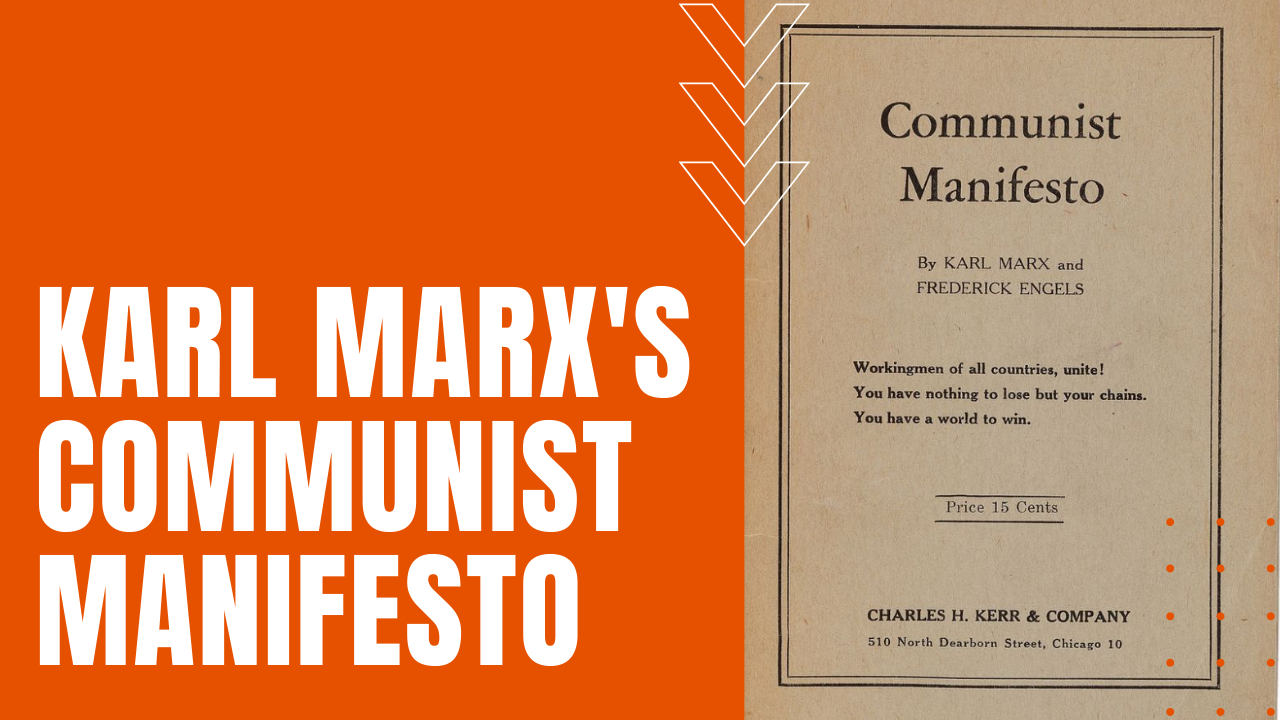Communist Manifesto by Karl Marx

After the Prussian government shut down Karl Marx’s liberal democratic newspaper in Cologne, in 1843, Marx emigrated to Paris, which was at the time a center for socialist thought. With the help of German-born philosopher Friedrich Engels, Marx began espousing a more radicalized form of socialism known as communism, which called for the proletariat or working class to overthrow capitalism.
Marx and Engels
Two years later, France like Prussia expelled Marx as an agitating troublemaker, forcing a move to Brussels where he was joined by Engels. Over the next two years, the two men refined their communist philosophies, and as their reputation in radical circles grew, revolutionary Germans living in London—known as the Communist League— commissioned Marx and Engel to draw up a manifesto detailing the principles of their beliefs.
With the help of Engels, Marx wrote The Communist Manifesto—arguably one of the most influential documents in human history—which was published in February of 1848. While many of the principles espoused in The Communist Manifesto were not new, Marx’s incendiary writing style opens with “A spectre is haunting Europe—the spectre of communism,” while ending with “The proletarians have nothing to lose but their chains. They have a world to win. Workers of the world unite!”
Europe’s Anti-Communist Efforts
Marx’s pamphlet had barely left the printing press when on February 22nd, after France banned political meetings held by socialist and other revolutionary agitators, which soon sparked a popular revolt that forced King Louis-Philippe to abdicate the thrown. As revolution spread across Europe, the Belgian government banished Marx out of fear that his radical philosophies would soon spread to the Belgian people.
Marx then moved to the Rhineland, were he continued to agitate for armed revolt. By his death in 1883, communism had become a movement throughout Europe, yet another 34 years would intervene before Vladimir Lenin led the world’s first successful communist revolution in Russia. Marx’s Communist Manifesto would continue to reverberate throughout the first half of the 20th century, witnessing nearly half the world’s population living under Marxist governments by the mid-century mark.
